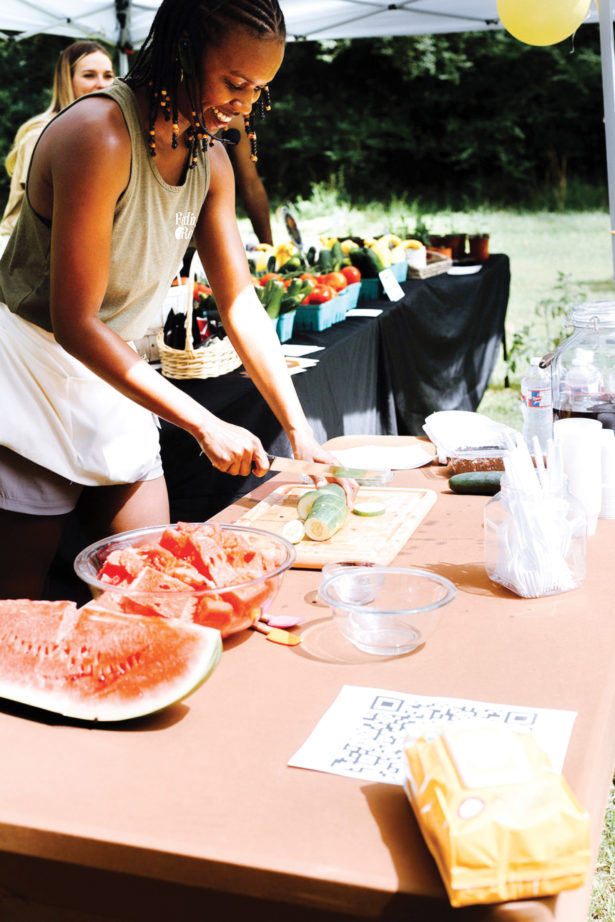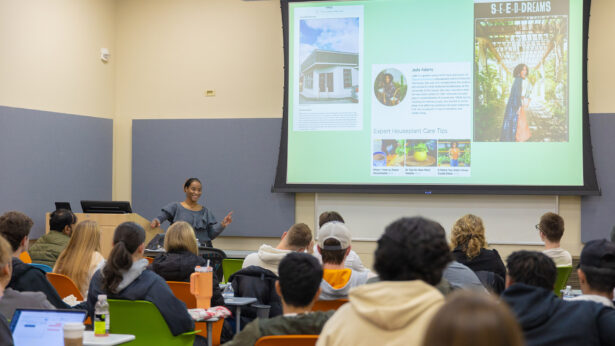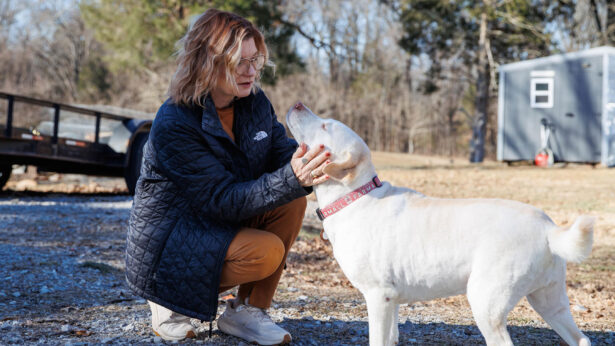By Sarah Joyner | Photos Courtesy of Samaria Grandberry
Samaria Grandberry was 7,000 miles away when it hit her. She had finally fulfilled a promise she made years ago to her great-grandfather.
A student at UT Chattanooga, she was getting ready for a summer trip to study abroad in Africa. Before leaving, she promised him she would bring something back for him. But he died while she was overseas.
“I was across the world. I never got a chance to say goodbye to him. I never got a chance to bring something back to him,” she says.
But this last summer on Juneteenth, while hosting a community health fair on her great-grandfather’s former farm—the land where she grew up—she made the promise come true.
She sold produce grown on the farm. Local vendors set up tents and booths selling coffee and food. Folks rolled out yoga mats and took morning classes. She offered a food demonstration using traditional African foods.
All of this on the same field where her great-grandfather spent so much time tending rows of green beans and corn.
“Being there was my way of honoring him and bringing something back to him because I know that, if he was there, he would have been so happy seeing our people and carrying on the legacy of what he did,” she says.
“He loved growing food and loved sharing it with people. And I was able to do that, just in a different way.”

Dietitian, Entrepreneur, Philanthropist
In the three years since she graduated from the dietetics program in the UTC Department of Health and Human Performance, Grandberry has been busy.
She’s blazing trails as a Black dietitian specializing in trichology, the study of diseases or problems related to hair and scalp.
Last year, to address food insecurity heightened by the COVID-19 pandemic in her hometown of Memphis, she started a buy-one-get-one program. Each time someone bought a box of produce from her family’s farm, she donated another box of produce to the local food bank. From there, she founded her own private practice, Feeding the Root.
Feeding the Root grew out of necessity, one that stretches far beyond Tennessee, she says. Roughly 2.6 percent of dietitians in the United States identify as Black, “and in the city of Memphis, it’s even smaller,” she explains.
“I saw a huge need for a provider of color in my city.”
Grandberry specializes in helping people get to the root of their hair loss and other scalp conditions. Her prescription? Lots of listening and the right kinds of food.
“I help them unpack what’s going on. Let’s look at the insides because your hair grows from the inside.”
She admits, though, that many people ask why she’s a dietitian talking about hair.
“Helping people understand the connection is a large part of what I’ve been working on because a lot of people think of our hair as just this topical, outward thing. They don’t think of it as an outward manifestation of what’s going on inside.”
She’s tapping into her background and family farm to produce prescription boxes of produce curated specifically for each client. The food often is grown on her family’s land, and each box includes recipes and meal plans tailored for the specific person.
While growing up on her family’s farm, she spent early mornings helping her dad pick peas and corn before school. Back then, it was just another eyeroll-inducing chore. Now she’s taking advantage of those childhood experiences and resources.
“I come from a family of what used to be sharecroppers; then it was just farming for pleasure and farming for our family. That’s always been a part of my family and our heritage.”



